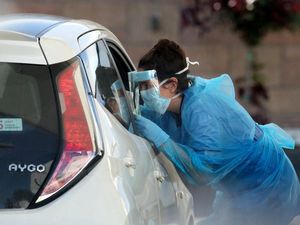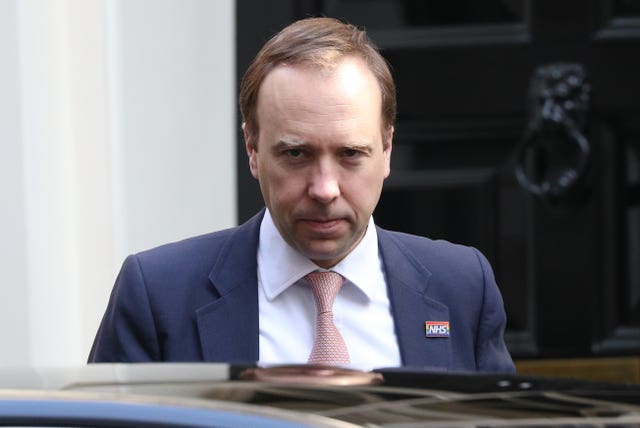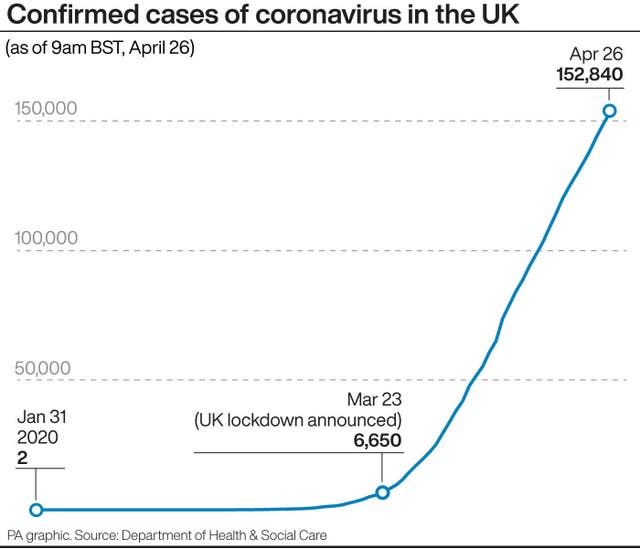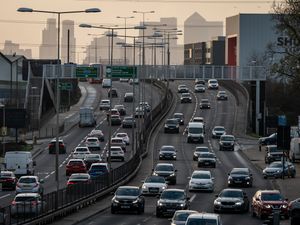Covid-19: How does the test, track and trace strategy work?
What is the strategy and how will it help the UK reduce its restrictions?

The Health Secretary has said the adoption of a “test, track and trace” approach could enable the “heavier” coronavirus social distancing measures to be eased.
But what is the strategy and how will it help the UK reduce its restrictions?
– What is the test, track and trace strategy?
In a nutshell, test, track and trace means testing people for coronavirus, tracking the spread of the virus, then tracing the people an infected person has come into contact with.

If someone tests positive, they will then need to isolate for at least seven days, while high-risk contacts could be asked to self-isolate.
– How will it help combat the spread of the virus?
Health Secretary Matt Hancock has said the strategy could help to suppress the transmission of Covid-19 in a way that then allows less stringent rules.
But Mr Hancock has also said that coronavirus cases need to drop substantially before the next phase of isolating infected people and their contacts can be truly effective.
The theory is that once lockdown measures have reduced the infection rate, it will be easier to use the test, track and trace approach to keep track of new cases.
– What is the first stage?

Crucially, people will first need to know if they have coronavirus.
The Government has pledged to carry out 100,000 tests a day by the end of April, and has widened the eligibility criteria to include all key workers.
The only tests currently available check whether a person has coronavirus by looking for antigens.
They do not show whether a person has previously had the virus, as reliable antibody tests have yet to be found.
– What happens next?
The Government wants to track Covid-19 in the population to try to understand the current rate of infection alongside how many people have developed antibodies to the virus.
Mr Hancock said 25,000 people will take part in the first phase of a large-scale testing study, with plans to expand it to up to 300,000 over the next 12 months.
For the study, initial findings from which are expected in early May, all participants will be tested to see if they currently have coronavirus, while adults in 1,000 of the households will provide blood samples to find out what proportion of the population has developed antibodies.
Once someone has tested positive, contact tracing will be essential to slow the spread.
– What is contact tracing?
Contact tracing is the process of reducing virus transmission by identifying and alerting people who may have been exposed so that they can protect themselves and others around them.
Once someone has tested positive for coronavirus, clinicians will gather information about places they have visited and people they have been in contact with to get a detailed picture of who might be at risk of infection.
Public Health England (PHE) said that people who are at risk will be contacted and given advice of what to do if they become unwell or develop symptoms.
People could be asked to self-isolate if they are at a higher risk of infection, PHE added.

– How is this being rolled out?
To help with contact tracing, 18,000 people are now being recruited who will help notify those who have come in contact with someone who has tested positive for coronavirus.
An NHS app is currently being developed which could identify people who have been in proximity to a smartphone user who subsequently develops coronavirus symptoms and tell them to self-isolate.
– How will the app work?
Using Bluetooth Low Energy signals, the app will log each time it comes into close range of other devices also running the app.
The app keeps an anonymous record of all these logs securely on a user’s phone.
If someone develops symptoms of Covid-19, they can use the app to inform the NHS, which will then trigger an anonymous alert to any other app users the infected person came into contact with by analysing the collected logs.
The app will then advise what action to take, including telling people to self-isolate if necessary.
– When is the NHS app expected to be released?
A date for the app’s release has not been confirmed and it remains in the development and testing phase.
So far, NHSX has only confirmed the app will be launched “in the coming weeks”.





